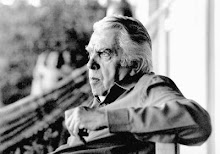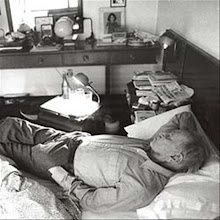Businessmen became politicians and were acclaimed as statesmen, while statesmen were taken seriously only if they talked the language of successful businessmen.
Hannah Arendt
1906 - 1975
Donald Trump stood before the world and proclaimed he had one qualification to be president: I’m rich. To be more specific, he said, “Part of the beauty of me is that I’m very rich.” He presented his wealth as evidence that he was “very smart,” and indeed superior in every respect. So magical were the powers that flowed from the mere fact of having accumulated this much cash (how much, we don’t know) that it would surely compensate for complete political inexperience or lack of the most basic administrative or historical knowledge. Once in office, he extended this logic to other members of the super-rich club, filling his government with individuals whose sole qualification for public office was their enormous, often inherited wealth.
Above all, Trump extended the equation of wealth with magical powers to members of his own dynastic family, bestowing on son-inlaw Jared Kushner (a real estate developer born a multimillionaire) a portfolio so overstuffed with weighty responsibilities it rapidly became a media joke. Tallying up the duties so far—brokering Middle East peace, planning the Mar-a-Lago summit with China, monitoring US activities in Iraq, ordering drone strikes on Yemen, making government run more like a business—New York Times columnist Frank Bruni wondered, “Why don’t we just stitch him a red cape, put him in spandex, affix a stylized ‘S’ to his chest and be done with it? SuperJared has taken flight.”
It would be reassuring if we could pin this billionaire-as-savior complex on Trump’s Twitter-addled brain, or on his advisers at the Heritage Foundation, with their Ayn Randian worship of “free enterprise” and men who build tall things. But the fact is, Trump and Kushner are not the first to imagine that their great wealth endows them with Marvel Comic-like superpowers, nor the first to be encouraged in their delusions.
For two decades now, elite liberals have been looking to the billionaire class to solve the problems we used to address with collective action and a strong public sector — a phenomenon sometimes called “philanthrocapitalism.” Billionaire CEOs and celebrities — Bill Gates, Richard Branson, Michael Bloomberg, Mark Zuckerberg, Oprah, and always, for some reason, Bono — are treated less like normal people who are gifted in their fields and happen to be good at making a great deal of money, and more like demigods. Business Insider ran a listicle in 2011 headlined “10 Ways Bill Gates Is Saving the World” — a perfect distillation of the enormous powers and responsibilities being delegated to, and projected upon, this tiny clique and their charitable foundations.


![[...]](https://blogger.googleusercontent.com/img/b/R29vZ2xl/AVvXsEjeNC2Kyxd34r2LuofHe9-vdXHeHwG3_2NhVmIOTlK2moU0Q4R7taMlS8iMmQgEl1-NdaRsPrLdREzfQZYKfUgjslwLZUZe67dAfFBREu-YRx6WGX-vAUt5eJT4_-lFwT4dGzGCQQ/s220/11798115_858304687558226_1857652538_n.jpg)














































